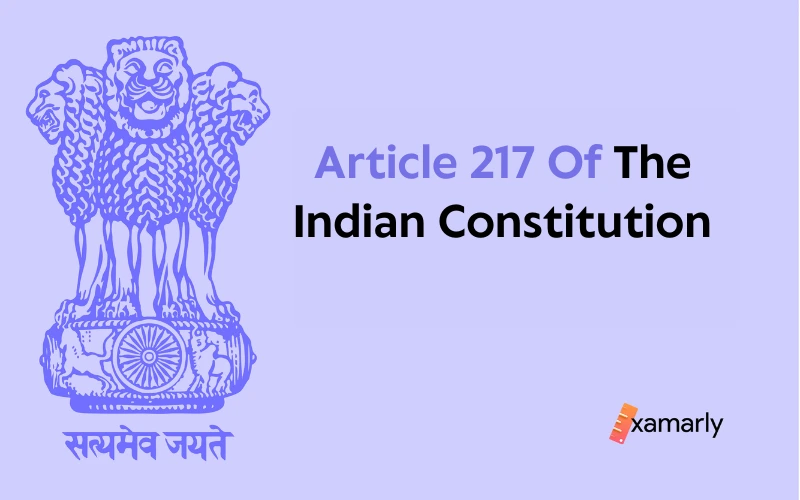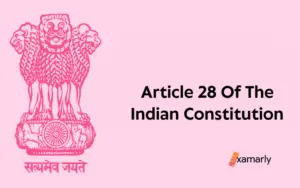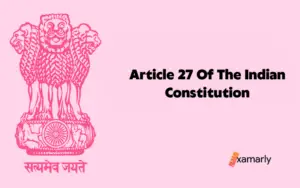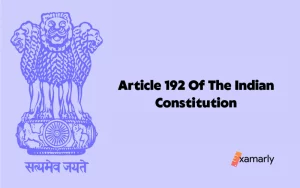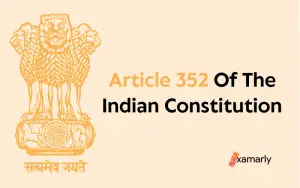Article 217 of the Indian Constitution addresses the process of appointing a judge to a high court and the requirements necessary to hold such a position.
In our nation, the judiciary is the cornerstone of democracy and aids in its efficient operation. The judiciary’s primary components are judges. In order for the judicial system to function effectively, judges must be effective. Judges must be impartial, independent, and possess special knowledge of law to ensure that justice is served.
Our Indian Constitution contains a number of laws regarding the appointment of judges, all of which must be adhered to. Such laws ensure that any potential corruption or biases are eliminated and that all judges are appointed based on their qualifications and merits alone.
This page offers details about the provisions of the aforementioned Article and the amendments that have been made to it. This is one of the important Articles as it contains the provisions regarding what is the qualification of a judge of an HC, and how he/she can serve in that capacity.
- Article 217 Of The Indian Constitution
- Which Amendment Has Revised Article 217?
- Procedure
- Winding Up
- FAQs
- What Is Article 124A?
- What Was National Judicial Appointments Commission?
- What Are The Qualification For A Person To Be Appointed As A High Court Judge?
- What Is Article 217 Entails?
- What Is Clause 3 Of Article 217?
- When The Position Of The Judge Of A High Court Becomes Vacant?
- Who Is Responsible For The Appointment Of The Judges?
Article 217 Of The Indian Constitution
The procedure for selecting a judge for a high court and the qualifications required to serve in such a capacity are covered under the Constitutional provisions of Article 217 of the Indian Constitution. These provisions are detailed in the clauses and sub-clauses which are mentioned below:
- Every Judge of a High Court shall be appointed by the President by warrant under his hand and seal on the recommendation of the National Judicial Appointments Commission referred to in article 124A, and the Governor of the State, and, in the case of appointment of a Judge other than the Chief Justice, the Chief Justice of the High Court, and shall hold office, in the case of an additional or acting Judge, as provided in article 224, and in any other case, until he attains the age of sixty-two years:
With the following caveats:- (a) A judge may retire from office by writing a letter to the president under his hand;
- (b) A Judge may be dismissed from his position by the President in accordance with the procedure outlined in clause (4) of article 124 for the dismissal of a Supreme Court Judge;
- (c) A judge’s position will be vacant if the president appoints him to serve as a judge of the Supreme Court or transfers him to another High Court located within Indian territory.
- A person must be an Indian citizen in order to be eligible for an appointment as a High Court judge. Besides this, some more requirements need to be followed to be qualified to serve as a Judge of the High Court, and these are listed below:
- (a) has occupied a judicial office in the Indian subcontinent for at least ten years
- (b) has served as an advocate in a High Court for at least 10 years, or in two or more such Courts consecutively.
Explanation— Regarding the intent of this clause— - (a) any time a person served as an advocate in a High Court, served as a member of a tribunal, or held any position with the Union or a State requiring specialized legal knowledge must be counted in determining the length of time that person has held judicial office within the territory of India;
- (aa) any time a person served in a judicial capacity, as a member of a tribunal, or in another position under the Union or a State that required specialized legal knowledge after becoming an advocate is counted toward the length of time that person has been an advocate of a High Court;
- (b) any time before the start of this Constitution during which a person held a judicial office in any region that was a part of India as specified by the Government of India Act, 1935, prior to the fifteenth day of August 1947, or was an advocate of a High Court in any such area, as the situation may be, must be counted in determining the time frame during which a person has been a member of the Indian judiciary or a High Court advocate.
- In the event that there is a dispute regarding the age of a judge of a High Court, the matter will be resolved by the President of India, who will do so in consultation with the Chief Justice of India, and the President’s judgment will be considered final.
Which Amendment Has Revised Article 217?
The said Article lays out the rules for the appointment process of judges to a High Court as well as the qualifications needed to serve as a judge. With time, there have been numerous revisions made to it which are as follows:
99th Constitutional Amendment: The President is obligated to appoint the judges of a High Court based on the advice of the National Judicial Appointments Commission, which is mentioned in article 124A of the Constitution, as stated in the amended version of Article 217 that was introduced by the 99th amendment.
7th Amendment of the Indian Constitution: The said amendment has amended clause (1) of the Constitution’s article 217 which states that the judge of an HC should hold office until he turns sixty years old unless he is an additional or acting judge as defined in article 224.
15th Constitutional amendment act, 1963: The age of retirement for High Court Judges was increased from sixty years to sixty-two years as a result of a change brought about by the 15th amendment to clause 1 of article 217.
42nd amendment and 44th amendment: 42nd amendment of the Constitution inserted sub-clause (c) to clause 2 of the aforementioned Article while the Forty-Fourth amendment of the Indian Constitution omitted this sub-clause (c).
Note: Check out the linked articles to learn more about the additional changes made to the aforementioned article by these two revisions.
Procedure
The procedure for appointment of judges to the High Courts is outlined in Article 217 of the Indian Constitution. According to the information presented in this Article,
- The President’s warrant and seal are required for the appointment of judges to the High Courts;
- Consultation of both the Chief Justice of India and the Governor of the State is required before the appointment may be made;
- Consultation with the Chief Justice of the High Court is necessary prior to the appointment of any judges who are not the Chief Justice;
- The consultation needs to be extremely productive, which means that all of the pertinent information regarding the individual whose services are being advised needs to be disclosed, and none of this information should be kept a secret in order to make the appointment go more smoothly.
- Even when additional judges are being appointed in accordance with Article 224, it is imperative that the provisions outlined in this article be adhered to.
- Up until the age of sixty-two, the individual can continue to serve in the capacity of the judge;
Winding Up
In our nation, there are many well-known judges who have made significant changes as a result of their rulings, advancing the nation as a whole. People in our nation appreciate judges, and they place a lot of trust and hope in them, thus, it is important to ensure that judges are appointed properly and without bias. Therefore, the selection of judges should be done with great care and through a process that allows for public input. This would ensure that the best candidates, regardless of their background or connections, are appointed to the bench.
Articles 124 and 217 speak about the appointment and conditions of judges of the Supreme Court and High Court.
Article 217 serves an important purpose. It provides guidance on the matters related to selecting personnel suited best for occupying HC posts across different parts of India’s judiciary system. It ensures fairness, transparency, and accountability during the recruitment process and subsequent implementation processes too’ thus helping maintain the highest standards possible amongst the country’s legal fraternity while ensuring justice prevails over everything else.
FAQs
What Is Article 124A?
In accordance with the provisions of Article 124A, a body that will be known as the National Judicial Appointments Commission will be established.
What Was National Judicial Appointments Commission?
In August of 2014, Parliament enacted the Constitution (99th Amendment) Act, 2014 coupled with the NJAC Act, 2014, which provided for the creation of an independent commission to appoint judges to the Supreme Court and high courts. This commission was intended to replace the collegium system that had previously been in effect.
What Are The Qualification For A Person To Be Appointed As A High Court Judge?
It is not possible to appoint someone to a position as a judge in the High Courts unless they meet the requirements for that particular position. Article 217 outlines the requirements that must be met in order to be considered for the position. According to the Contents of the Article, the aspect of appointment of a person to serve in the capacity stated above is outlined below:
1. The individual who is appointed needs to be a citizen of India;
2. The appointed individual must have served for at least ten years in a judicial capacity on Indian soil;
3. A minimum of ten years of experience working as an advocate in the High Court is required for the individual to be appointed.
What Is Article 217 Entails?
The procedure for selecting a judge for a high court and the qualifications required to serve in such a capacity are covered under Article 217 of the Indian Constitution.
What Is Clause 3 Of Article 217?
In accordance with Clause 3 of Article 217, if there is a disagreement over a judge of a High Court’s age, the President of India will decide the issue after consulting with the Chief Justice of India, and the President’s decision will be regarded as final.
When The Position Of The Judge Of A High Court Becomes Vacant?
The position of the judge of a High Court becomes vacant under the following conditions:
(a) A judge may step down from his or her position by writing a letter to the president in his or her handwriting;
(b) The President has the authority to remove a judge from office in accordance with the process provided in clause(4) of article 124 for removing a Supreme Court judge;
(c) If a judge is transferred to another High Court in Indian territory by the president or appointed to the Supreme Court, the position of that judge will become vacant.
Who Is Responsible For The Appointment Of The Judges?
The power of appointment of the Judges of HC solely delves into the hands of the President of India in line with Article 217. He/she by warrant under his hand and seal after consultation with the Chief Justice of India, the Governor of the State, appoints all High Court.


